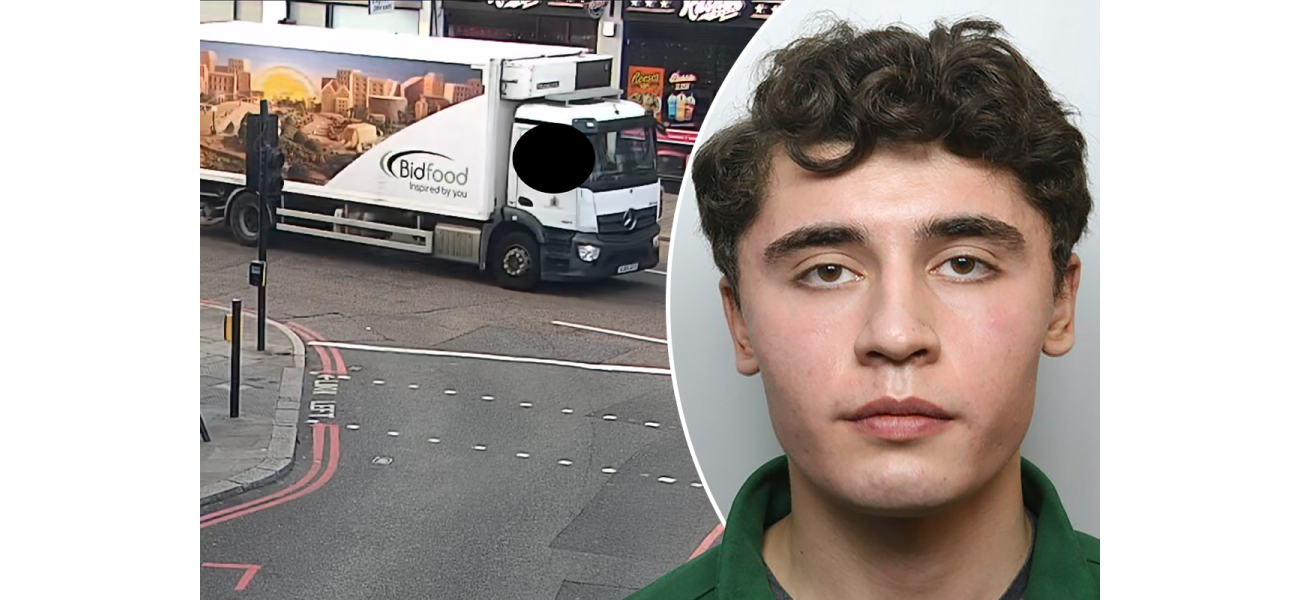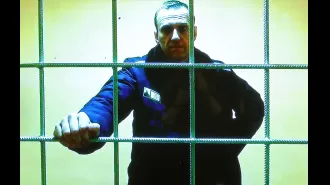Briton who escaped jail found guilty of espionage.
British ex-soldier Khalife convicted of spying for Iran after daring prison escape and dayslong manhunt.
November 28th 2024.

A daring escape from a London prison by a former British soldier has resulted in his conviction for spying for Iran. After a dayslong search, 23-year-old Daniel Khalife was found guilty by a jury in Woolwich Crown Court of violating Britain's Official Secrets Act and Terrorism Act by collecting information for the enemy, Iran. However, he was cleared of a charge of planting fake bombs in his military barracks.
Prosecutors described Khalife's actions as a "cynical game," stating that he had delivered a large amount of restricted and classified material to the Iranian intelligence service, including the names of special forces officers. Khalife, on the other hand, claimed that it was all part of a ploy to ultimately work as a double agent for Britain, a plan he had developed from watching the TV show Homeland. He told jurors, "I wanted to utilize my background to further our national security."
According to Khalife's defense lawyer Gul Nawaz Hussein, his client's aspirations to be a James Bond figure were naive, stupid, and almost comical. He compared Khalife to the cartoon character Scooby Doo rather than the suave and sophisticated 007. Despite this, Cmdr. Dominic Murphy, head of counter-terrorism at the Metropolitan Police, emphasized that Khalife presented a real danger. "He's like the ultimate Walter Mitty character, having a significant impact in the real world," he said, referring to the fictional character in a James Thurber short story who daydreams of daring adventures.
Murphy noted that the threat posed by Iranians to the UK's national security is well-known, citing the 20 disrupted plots, including assassination plans, by UK authorities. However, Khalife's court case did not attract much attention until he managed to escape from a London prison in September 2023 and remained at large for three days. He had been working in the kitchen at Wandsworth Prison in south London when he strapped himself to the bottom of a delivery truck and escaped. He was eventually caught on a canal path after a massive search.
The escape from the Victorian-era prison exposed broader weaknesses in the nation's aging and overcrowded correctional system. An inquiry is currently underway to investigate how Khalife was able to escape and whether he had help from others. During his trial, Khalife pleaded guilty to the escape but continued to deny the spying charges.
Justice Bobbie Cheema-Grubb stated that Khalife faces a lengthy prison sentence when he is sentenced after the New Year. Khalife had joined the Army at the young age of 16 and was assigned to the Royal Corps of Signals, a communications unit that works with battlefield troops, special forces, and intelligence squads. However, he was told that he could not join the intelligence service because his mother is from Iran.
At the age of 17, Khalife made contact with a man connected to Iranian intelligence and began passing along information. He was later given NATO secret security clearance when he participated in a joint exercise in Texas. British security officials were unaware of Khalife's contacts with the Iranians until he anonymously reached out to MI6, the UK's foreign intelligence service, offering to work as a double agent. He claimed to have earned the trust of his Iranian handlers and that they had rewarded him by leaving $2000 in a dog poo bag in a north London park.
Khalife stated that most of the information he provided to his Iranian handlers was made up or available online and did not expose any military secrets. However, prosecutors presented evidence from his mobile phones, notes, and surveillance footage to show that he had gathered and shared classified information. They also discovered that he had traveled to Turkey to meet with a contact. "He surreptitiously sought out and obtained copies of secret and sensitive information, which he knew were protected, and passed these on to individuals he believed were acting on behalf of the Iranian state," said Bethan David of the Crown Prosecution Service. "The sharing of this information could have exposed military personnel to serious harm or risk to life and prejudiced the safety and security of the United Kingdom."
In conclusion, Khalife's actions have had serious consequences, and he will be facing a long prison sentence for his crimes. It is a reminder that even seemingly naive and foolish actions can have severe repercussions, especially when it comes to national security.
Prosecutors described Khalife's actions as a "cynical game," stating that he had delivered a large amount of restricted and classified material to the Iranian intelligence service, including the names of special forces officers. Khalife, on the other hand, claimed that it was all part of a ploy to ultimately work as a double agent for Britain, a plan he had developed from watching the TV show Homeland. He told jurors, "I wanted to utilize my background to further our national security."
According to Khalife's defense lawyer Gul Nawaz Hussein, his client's aspirations to be a James Bond figure were naive, stupid, and almost comical. He compared Khalife to the cartoon character Scooby Doo rather than the suave and sophisticated 007. Despite this, Cmdr. Dominic Murphy, head of counter-terrorism at the Metropolitan Police, emphasized that Khalife presented a real danger. "He's like the ultimate Walter Mitty character, having a significant impact in the real world," he said, referring to the fictional character in a James Thurber short story who daydreams of daring adventures.
Murphy noted that the threat posed by Iranians to the UK's national security is well-known, citing the 20 disrupted plots, including assassination plans, by UK authorities. However, Khalife's court case did not attract much attention until he managed to escape from a London prison in September 2023 and remained at large for three days. He had been working in the kitchen at Wandsworth Prison in south London when he strapped himself to the bottom of a delivery truck and escaped. He was eventually caught on a canal path after a massive search.
The escape from the Victorian-era prison exposed broader weaknesses in the nation's aging and overcrowded correctional system. An inquiry is currently underway to investigate how Khalife was able to escape and whether he had help from others. During his trial, Khalife pleaded guilty to the escape but continued to deny the spying charges.
Justice Bobbie Cheema-Grubb stated that Khalife faces a lengthy prison sentence when he is sentenced after the New Year. Khalife had joined the Army at the young age of 16 and was assigned to the Royal Corps of Signals, a communications unit that works with battlefield troops, special forces, and intelligence squads. However, he was told that he could not join the intelligence service because his mother is from Iran.
At the age of 17, Khalife made contact with a man connected to Iranian intelligence and began passing along information. He was later given NATO secret security clearance when he participated in a joint exercise in Texas. British security officials were unaware of Khalife's contacts with the Iranians until he anonymously reached out to MI6, the UK's foreign intelligence service, offering to work as a double agent. He claimed to have earned the trust of his Iranian handlers and that they had rewarded him by leaving $2000 in a dog poo bag in a north London park.
Khalife stated that most of the information he provided to his Iranian handlers was made up or available online and did not expose any military secrets. However, prosecutors presented evidence from his mobile phones, notes, and surveillance footage to show that he had gathered and shared classified information. They also discovered that he had traveled to Turkey to meet with a contact. "He surreptitiously sought out and obtained copies of secret and sensitive information, which he knew were protected, and passed these on to individuals he believed were acting on behalf of the Iranian state," said Bethan David of the Crown Prosecution Service. "The sharing of this information could have exposed military personnel to serious harm or risk to life and prejudiced the safety and security of the United Kingdom."
In conclusion, Khalife's actions have had serious consequences, and he will be facing a long prison sentence for his crimes. It is a reminder that even seemingly naive and foolish actions can have severe repercussions, especially when it comes to national security.
[This article has been trending online recently and has been generated with AI. Your feed is customized.]
[Generative AI is experimental.]
0
0
Submit Comment





